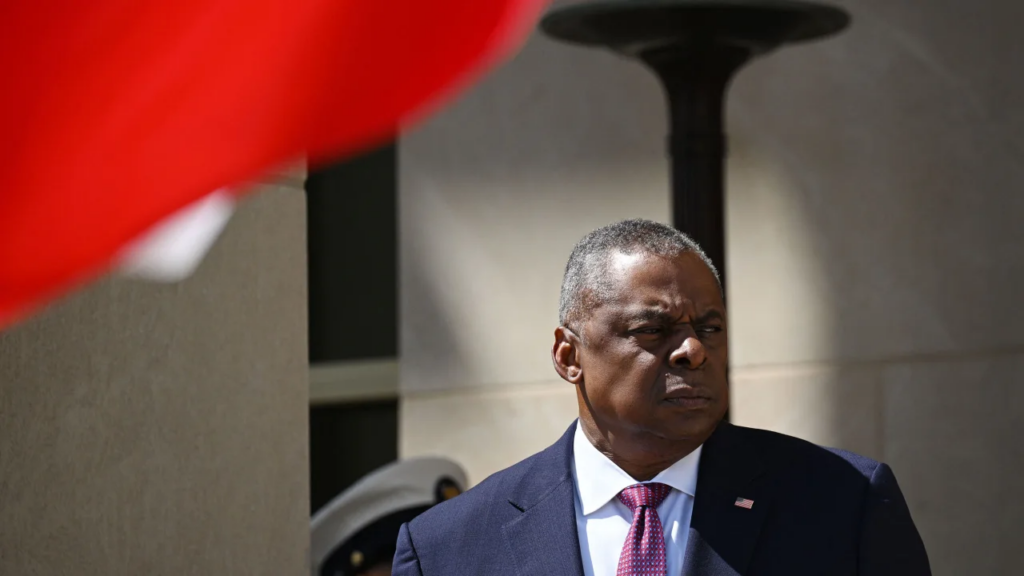Defense Secretary Lloyd Austin penned a letter harshly denouncing a Republican Senate block on senior military promotions and nominations, calling it a “perilous precedent” for the military and “unconscionable” for military families.
On May 5, in response to Democratic Sen. Elizabeth Warren’s inquiry, the letter called Alabama Republican Sen. Tommy Tuberville’s attempt “irresponsible” and “unprecedented.” Austin said it damages US military reputation abroad and puts “new and unnecessary risk on US warfighters across multiple theaters of operations.”
“Ultimately, the breakdown of the normal flow of leadership across the Department’s carefully cultivated promotion and transition system will breed uncertainty and confusion across the US military,” Austin warned. “This protracted hold means uncertainty for our service members and their families and rising disquiet from our allies and partners, at a time when our competitors and adversaries are watching.”

Tuberville has withheld general and flag officer nominations in protest of new reproductive health policy in the US military, which give leave and travel allowances for troops or their families who must travel for abortions.
IVF and IUI patients can also take 21 days off.
According to a Pentagon news release, the new policies “will not only ensure that service members and their families are afforded time and flexibility to make private health care decisions, but will also ensure that service members are able to access non-covered reproductive health care regardless of where they are stationed.”
However, Tuberville claims that government financing can only be used for abortions in circumstances of rape, incest, or the mother’s life. A dozen Senate and House Republicans have supported him, calling the Pentagon’s actions “illegal,” “atrocious,” and “immoral.”
The US military only performs abortions in the three covered conditions.
Defense officials worried that the nomination suspension would hurt military preparedness and disrupt promotions and family relocations.
The Indo-Pacific and Naval Forces Central Command commanders of the Navy’s 7th and 5th Fleets are among 180 Senate nominees. It includes NATO’s military representation.
Austin wrote to Warren that 64 three- and four-star positions are expected to rotate out to a new flag or general officer within 120 days, including the Army chief of staff, Navy chief, Marine Corps commandant and assistant commandant, US Northern Command commander, National Security Agency director, and US Cyber Command commander.
The chairman of the Joint Chiefs of Staff, the military’s top uniformed officer, and the Army and Air Force vice chiefs will also be nominated in the coming months.
Austin cautioned that without these commanders, the U.S. military will take an unwarranted and extraordinary risk at a time when our adversaries may test our commitment.

He adds that the pause may compel “out units to operate with less experienced decision makers in charge” and make it “harder for the United States to fulfill its global leadership responsibilities.”
Austin reminded Warren in his letter that the candidates must be approved swiftly.
Austin noted that it may affect other military commanders whose promotions are “possible only with the retirement of others.”
Austin said the military could delay or cancel permanent change of station moves, which are already stressful for service members and their families.
Annually, the Senate unanimously confirms hundreds of civilian and military nominees. With Tuberville blocking the process, it may take months to review each military candidate, which a Democratic Senate aide warned CNN might take a year.
This extended delay jeopardizes national security and Pentagon operations. He stated the US military relies on top military officers’ strategic wisdom and experience. “The longer this hold persists, the greater the US military risk in every theater, domain, and service.”

